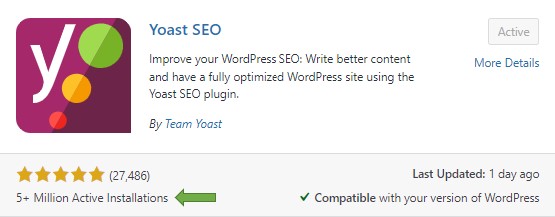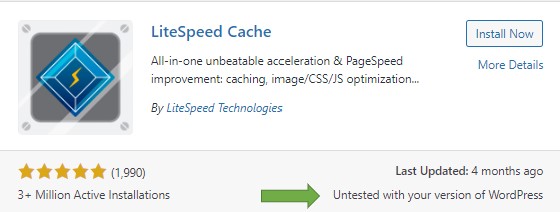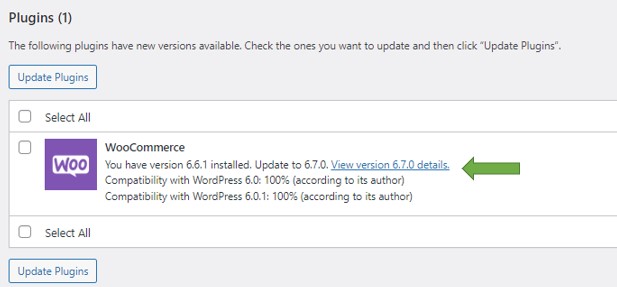We recommend keeping this old adage in mind: just because you can use a plugin doesn’t mean you should! Here’s why:
- Some WordPress plugins weigh your site down with unnecessarily heavy code, making page speeds slow and causing frustration for users.
- Other plugins can open your site to security risks, even if they're not being actively used on your website.
- Many plugins aren’t routinely updated, or are even outright abandoned, by the original developer.
- And not all plugins get along. Adding one plugin could cause another plugin – or even your theme – to stop working correctly.
In all of these cases, it’s best not to use them. But how can you tell a good plugin from a “bad” one?
Here are a few tips for choosing the best WordPress plugins for your website.
Tips for Choosing the Best WordPress Plugins
First, beware “shiny object syndrome.” Too many site owners succumb to a plugin frenzy and pile them up, which often leads to maintenance and security issues. On average, we recommend organizations use no more than 15-20 plugins.
When considering using a plugin, answer these six questions:
- How many times has the plugin been installed? The more installs, the better. In general, if a plugin has been available for some time and has few installs, it might be best to avoid it. You can find this information in the WordPress plugin directly below the reviews for each plugin. Here's an example:

- Are the reviews good? WordPress has a highly engaged and vocal community. Poor reviews are a big red flag. At the same time, don't put too much stock in a 5-star-rated plugin if it has a small number of reviews.
- What date was the plugin last updated? Many security vulnerabilities can be avoided by choosing plugins that are frequently updated. Ideally, a plugin should have been updated within the past 2-3 months.
- Has the plugin been tested in the latest version of WordPress core? This ensures that you won’t run into compatibility and functionality issues upon install.

The plugin shown above hasn't been tested with the version of WordPress my website is running. Installing this plugin might cause conflicts.
- Is there a slew of unanswered support questions? One sure-fire way to tell that a developer has abandoned a plugin – in addition to infrequent or old updates – is lack of engagement with users.
- Does the plugin meet WordPress coding standards? To reduce slow page load times, meet accessibility standards, and ensure that the plugin can be managed by anyone with coding experience, make sure the plugin follows best practices. Check out WordPress coding standards here.
Avoid wasting your time with WordPress plugins that don’t provide the best answers to these questions.
WordPress Plugins Require Frequent Updates
Once you’ve chosen a WordPress plugin, your work doesn’t stop there!
We’ve coined the term “WordPress Mess” to describe having way too many plugins and too many plugins that are far too outdated. This usually happens because in-house site managers don’t understand the depth of maintenance needed to keep a WordPress website stable and secure, or maybe a previous vendor failed to provide ongoing support. (If either of these scenarios sound familiar, Northwoods can help!)
On the upside, the WordPress dashboard lists all existing plugins that need to be updated. It also tells you which version you have versus the latest available, so you know exactly how far behind you are. Most plugins also provide a list of improvements and changes made in the most recent update, so you know exactly what to expect before installing the latest version. Pay close attention to any updates that are fixing security issues, and make sure to update those plugins as soon as possible.

Best practice is to update your plugins monthly to ensure peak performance and to reduce security risks. If monthly updates seem overwhelming, Northwoods offers a Worry Free WordPress maintenance service to take that work off your plate and give you peace of (digital) mind!
(Important side-note: Choosing the best plugins and keeping them up-to-date isn’t the only thing that WordPress website managers need to worry about. Here are six questions every business with a WordPress website should be able to answer.)
Final Thoughts
WordPress plugins offer significant flexibility for adding features and functionality to websites. They do require thoughtful selection and ongoing management, though, to ensure your site provides both the best user experience and reduces security risks – both for you and your site visitors.
If you need help with plugin selection or management, or general WordPress website maintenance, don’t hesitate to reach out. We’re happy to help!